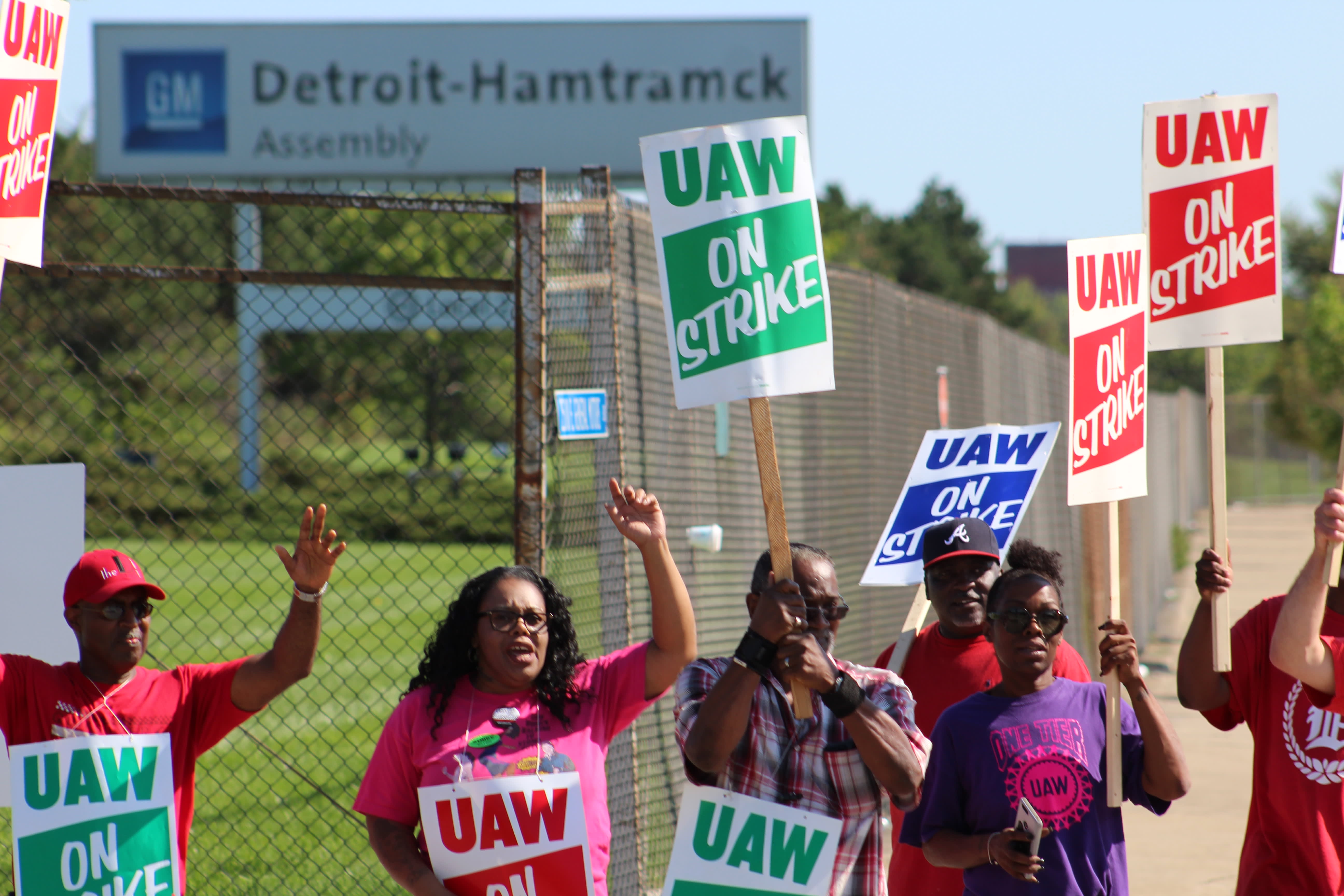Investors seem 'comfortable' with GM strike despite mounting costs, analyst says

United Auto Workers members on strike picket outside General Motors' Detroit-Hamtramck Assembly plant on Sept. 18, 2019 in Detroit.
Michael Wayland / CNBC
DETROIT — Wall Street remains "comfortable" with a prolonged union strike potentially costing General Motors billions as long as the ends justify the means, according to Morgan Stanley analyst Adam Jonas.
"Investors we have engaged with are comfortable with extended strike duration and potential upfront multibillion-dollar financial impact as long as GM preserves long-term cost and strategic flexibility," Jonas wrote in a research note Monday. "We don't sense capitulation among investors as long as 2020 forecasts remain intact."
Analysts estimate GM has lost more than $1 billion due to the United Auto Workers' strike, which began Sept. 16, with Credit Suisse forecasting up to $1.5 billion in losses through Oct. 21, when it assumed the work stoppage would end.
Anderson Economic Group, a Lansing, Mich.-based consulting firm, estimated GM has already lost $1.13 billion as the strike entered its fifth week on Monday.
GM shares are down about 9% since Sept.13, the last trading day before the strike. The stock was trading slightly down midday-Monday after opening at $35.39.
Retaining strategic flexibility and preserving long-term costs are both crucial for the automaker to not externally be viewed as reverting to bad habits of "Old GM," a reference to the automaker's pre-bankruptcy operations.
GM significantly lowered its fixed labor costs and won much of its manufacturing flexibility as a result of its 2009 bankruptcy. The automaker's U.S. hourly labor cost is about $5 billion compared with about $16 billion in 2005, according to Morningstar Equity Research.
The most critical cost-saving measure – roughly $3 billion a year – was setting up a voluntary employees' beneficiary association for the retiree healthcare costs of UAW members, according to Morningstar.
The strike is the UAW's longest national work stoppage against GM since a 67-day strike in 1970.
Union's costs grow
Costs also are growing for the union, which on Saturday announced its International Executive Board voted to raise weekly "strike pay" for workers walking picket lines by $25 to $275. The 10% increase raises estimated weekly costs for the union's strike pay to roughly $13.2 million, up from $12 million.
The union pays striking workers out of its "strike and defense fund," which the UAW says totaled nearly $800 million before the strike started in mid-September.
UAW Vice President Terry Dittes, in a video to members on Sunday, said the increase was in appreciation for "all the sacrifices" union members have made during the past month. GM workers, including third-party Aramark workers who are separately on strike against GM, also can seek part-time work outside of the company as long as they fulfill their picket duties.
"This is a big step for the International Executive Board, but it was done because we appreciate all you have been doing and all the sacrifices that you have put out there," Dittes said. "We know how hard it is."
The UAW's strike, according to Dittes, was the union's "last resort" as it attempts to not only win better wages and benefits for GM members but set an "agenda for all workers across this country."
The UAW on Sunday also announced a strike for more than 3,600 members working for heavy-duty truck manufacturer Mack Truck. The work stoppage, which impacts plants in six states, is unaffiliated with the GM or Aramark strikes but is expected to add to the union's costs.
The UAW, according to its website, does not collect union dues from workers while they are on strike.
Negotiations continue
Negotiators with the UAW and GM worked through the weekend following a contentious week of talks where GM CEO and Chairman Mary Barra met with union leaders for the first time since the start of the negotiations.
Two people familiar with the negotiations characterized the weekend talks as "moving forward" and "progressing," as the sides continued a back-and-forth on economic issues such as plant investments, job security and compensation. They resumed talks Monday morning.
United Auto Workers President Gary Jones and General Motors CEO and Chairman Mary Barra shake hands during an event on Sept. 3 to officially open contract negotiations in Detroit.
Source: General Motors
One of GM's most recent offers included $7.7 billion in "direct" investments in U.S. factories, rather than a mix of direct and "indirect" investments in its previous commitment of $7 billion.
In a company-wide message to employees Friday, Executive Vice President of Global Manufacturing Gerald Johnson said the proposal addresses many of the UAW's top concerns, including preserving health costs and providing a "clear path" for temporary workers to reach permanent employment.
"Our offer builds on the winning formula we have all benefited from over the past several years," he wrote. "We remain focused on building a stronger future for everyone."
Read More
No comments